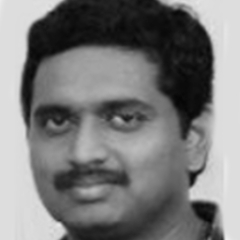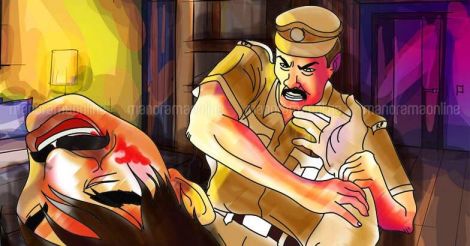The recent custodial death of a Kochi youth has once again thrown light on the savage arm of the police called special squads. The squads, put together by officers from the level of station house officer (SHO) to the director-general of police, often act as extra-legal authorities which throw operating procedures and legalities to the wind.
A veteran law-enforcer in Thiruvananthapuram said on condition of anonymity that the squads were initially formed to quell 'difficult' and violent gangs. The squad members were hand-picked by seniors and the criterion was mostly 'a willingness to work against a stack of odds.' For leg work and information gathering, he said, young officers were picked from camps of the armed reserve police.
Sources said the apparent air of having a chip on their shoulders and the perception of wielding unbridled power, including that to detain and question people at unmarked locations, often led the squads astray.
The officer said the onus was on the seniors to rein in the squads as it could be an effective law and order machinery and a 'disciplined element of state power' if supervised properly.
The squads tread a thin line between crime and law-enforcement. This is especially so because they pounded the streets at the most unholy hours and rubbed shoulders with reformed criminals to elicit information. Sources said the squads easily strayed into mediation between gangs for pecuniary benefits. They arbitrated on behalf of gangs and anti-social elements and, in turn, were often on the wrong side of law. Sources said the squad members often abetted and aided crime, helped small-time smugglers, engaged in tenant evictions under the guise of 'saving precious time for house-owners' and so on.
All squads in the state police were dissolved by the then state police chief after the custodial death of Udayakumar at the infamous Fort police station in Thiruvananthapuram in 2005. Later, such squads were constituted again as officers 'felt the need' for a third, sly arm to deal with criminal elements.
An officer who was for long part of the crime branch's special investigation support team (SIST) said the anti-goonda squads and shadow teams were little aware of psychological interrogation methods and often employed brutal third-degree methods on hapless detainees. They picked armed reserve camps for the torture and 'transferred' the badly brutalised detainees to the local police stations for routine 'charging' of cases. He said the policemen at stations would often take the blame in the event of a fatality.
Read more: Latest Kerala news


























 Sources said the apparent air of having a chip on their shoulders and the perception of wielding unbridled power, including that to detain and question people at unmarked locations, often led the squads astray.
Sources said the apparent air of having a chip on their shoulders and the perception of wielding unbridled power, including that to detain and question people at unmarked locations, often led the squads astray.